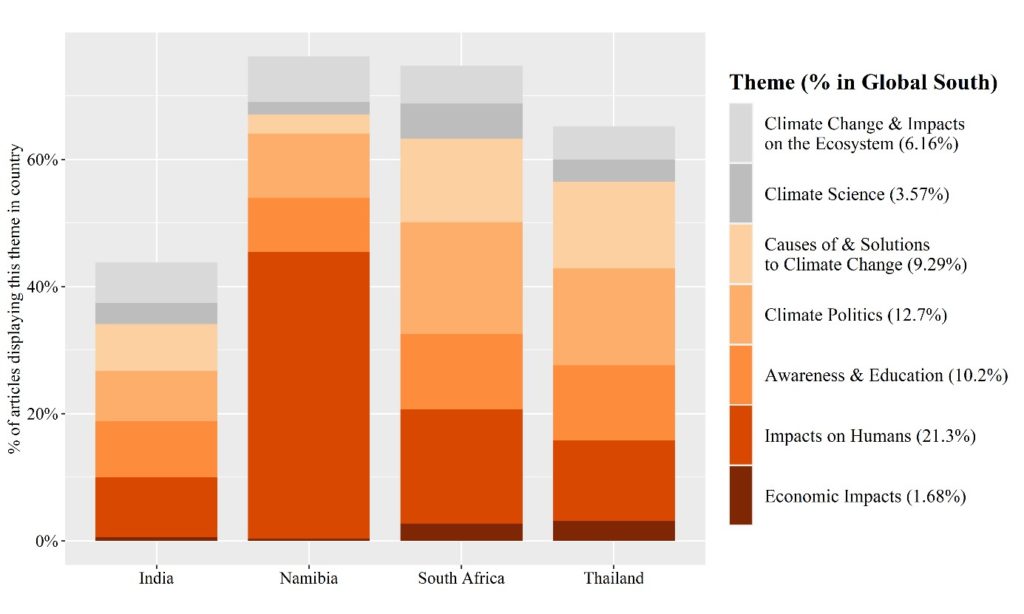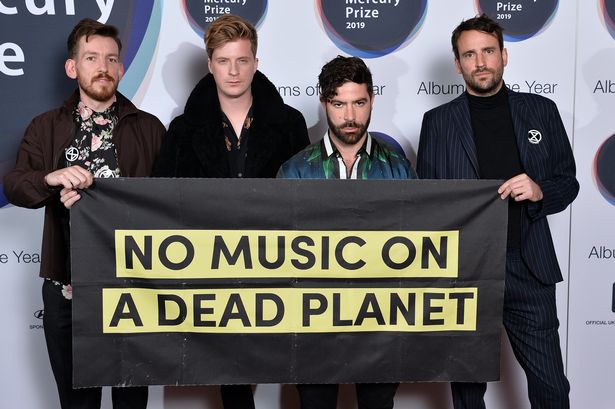Experts and Pundits During Crisis on (TV) News

During crises, the role of news media is crucial. They are expected to deliver coherent, science-based information, promote transparency, and act as responsible intermediaries between governmental authorities and the public. When it comes to climate issues, media face additional challenges due to the complexity and scale of related events.
Study of the Month: (Disruptive) Climate Protests and Social Media Polarization

Disruptive climate protests attract significantly higher engagement on social media—but also contribute to deeper polarization. This raises questions about how activist movements can—or should—design their actions and communicate their goals in polarized online environments. In our “Study of the Month” series, the blog team presents recent research relevant to climate communication and social media studies. […]
Climate Matters is Back Online!

After taking a break, climatematters.de is proudly back online with a renewed layout, an extended team of authors and some new ideas on where we want to go. Climatematters.de strives to become your companion to research and commentary concerning media debates about climate change and ecology. Starting as a climate debate Watchblog around the climate […]
Comparing Coverage of Climate Change Across the Global North and South

India and Thailand are among the countries affected most by climate change. Still, we know little about how news media in these nations cover climate change. In a recent study, we wanted to change that and asked: How and how much do countries from the Global North and South cover climate change?
Unseen Scenes From COP26: E-Racing Cars And Youthwashing Events
“COP has now become a Global North Greenwashing Festival”, summarized Greta Thunberg as she closed the rally of the Youth Climate Strike in Glasgow. Greta has come a long way. In 2018, COP24 elevated her voice onto the global consciousness. The young, then 15-year-old girl talking in an accusing, emotional tone, to the distant, very […]
After Lunch Post: Zum Essen mit Sighard Neckel

Wie kommt die Gesellschaft in die Zukunft? Sighard Neckel, Professor für Soziologie an der Universität Hamburg, unterscheidet drei Szenarien. (1) Modernisierung. Dies ist der Merkel-Weg, den die meisten westlichen Politiker:innen gehen. Sie erkennen die vor uns liegenden ökologischen Probleme durchaus an, wagen aber nur kleine Schritte Richtung Klimaschutz, Nachhaltigkeit, aber ohne große Veränderungen an den […]
COP26: Media and Twitter Attention at All-Time High
A quick update with visuals drawn from our Online Media Monitor on Climate Change (OMM) Good news: COP26 has refocused news media attention and Twitter attention to climate change to an all-time high since 2017. This is also true when dating back to 2004, according to Max Boykoff’s observatory on media coverage, which shows–based on […]
Where Realism Tips Into Optimism: Review of “The Ministry for the Future” (2020)

Just as the current climate talks begin , allow us to imagine another future. An optimist one. This spring, I gave my mother a book as a present, promising an optimistic take on climate change and on how our next 30 years might play out. Half a year later, she still has not read past […]
Climate Change in Pop Culture Part 3: alternative and independent music

Following up on our series about climate change in pop culture (read part 1 about young adult novels and part 2 about pop songs), here are some more examples of songs dealing with the topic of climate change. This time, we focused on independent and alternative music. Climatization in pop culture Through climatization, a process […]
Climate change: the basics | Basisfakten über den Klimawandel

Our up-to-date collection of useful information sources in English and in German. Climate change is a reality that we can no longer run from. It’s here and it’s happening now, threatening our food supplies, our infrastructure, our health, and the fabrics of our societies. The idea of tackling such a large-scale problem can seem overwhelming. […]
